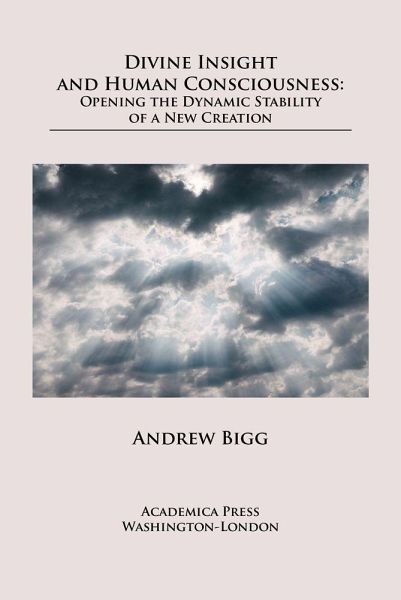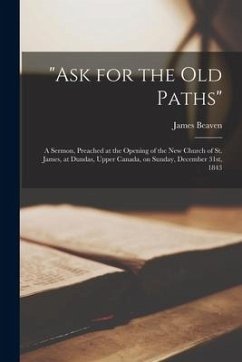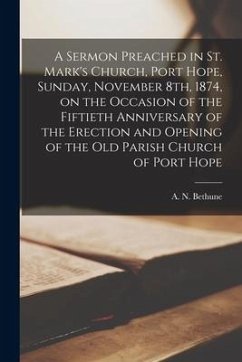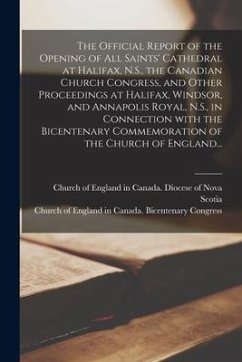
Divine Insight and Human Consciousness: Opening the Dynamic Stability of a New Creation

PAYBACK Punkte
18 °P sammeln!
"Doing" theology ought to be deep, creative, and awe-inspiring. Big theological questions should be asked in the most genuinely helpful manner. Often, and inevitably from a human perspective, we ask questions such as "Why doesn't God...?" or "Why does God allow...?" or, perhaps more appropriately, "What is the best way to conceive of God through His engagement with creation?" In Real Divine Insight and Human Consciousness, Andrew Bigg considers the logical and eschatological consequences of the pivotal union of "perspectives" in the Christian concept of Incarnation. The systematic approach pr...
"Doing" theology ought to be deep, creative, and awe-inspiring. Big theological questions should be asked in the most genuinely helpful manner. Often, and inevitably from a human perspective, we ask questions such as "Why doesn't God...?" or "Why does God allow...?" or, perhaps more appropriately, "What is the best way to conceive of God through His engagement with creation?" In Real Divine Insight and Human Consciousness, Andrew Bigg considers the logical and eschatological consequences of the pivotal union of "perspectives" in the Christian concept of Incarnation. The systematic approach proceeds as "according to a whole," or both theologically and scientifically relevant. We are aware, not least through Biblical texts, that there is a divine viewpoint of creation. The Bible says, "For my thoughts are not your thoughts,nor are your ways my ways...For as the heavens are higher than the earth, so are my ways higher than your ways and my thoughts than your thoughts" (Isaiah 55:8-9). Furthermore, "the Lord does not see as mortals see" (1 Samuel 16:7), and we even hear the charge "you thought that I was one just like yourself" (Psalm 50:21). Humanity, however, asks questions about God's "perspective," while God asks rhetorical questions about human perspectives. In the Incarnation, however, these conflicting perspectives are somehow established in union with one another. From this divine-human perspective, Christ asks His disciples the incisive opening question "What are you looking for?," followed by the invitation "come and see" (John 1:37-39). Engaging theologically, learning what best to ask and how best to ask it, is inseparable from a journey of formation, preparation, and growth towards that ultimately shared self-knowledge to which Christ's invitation directs us, pointing towards a nuanced way of "seeing" and, eventually, "seeing together."



![Calvinism in Relation to Other Theistic Systems [microform]: a Lecture Delivered at the Opening of the Session of Knox College, Toronto, on 3rd Octobe Cover Calvinism in Relation to Other Theistic Systems [microform]: a Lecture Delivered at the Opening of the Session of Knox College, Toronto, on 3rd Octobe](https://bilder.buecher.de/produkte/65/65631/65631456n.jpg)


![Sermons Delivered at the Opening of St. Andrew's Church, Ottawa, 25th January, 1874 [microform] Cover Sermons Delivered at the Opening of St. Andrew's Church, Ottawa, 25th January, 1874 [microform]](https://bilder.buecher.de/produkte/66/66200/66200431n.jpg)
![The Sustentation of the Gospel Ministry [microform]: a Sermon Preached at the Opening of the Synod of the Free Church of Nova Scotia, at Halifax, June Cover The Sustentation of the Gospel Ministry [microform]: a Sermon Preached at the Opening of the Synod of the Free Church of Nova Scotia, at Halifax, June](https://bilder.buecher.de/produkte/66/66195/66195615n.jpg)
![The True Rule of Christian Conduct [microform]: a Sermon Preached at the Opening of the Synod of the Free Church of Nova-Scotia, at New Glasgow, June Cover The True Rule of Christian Conduct [microform]: a Sermon Preached at the Opening of the Synod of the Free Church of Nova-Scotia, at New Glasgow, June](https://bilder.buecher.de/produkte/65/65521/65521567n.jpg)
![The Bishop's Address at the Opening of the General Conference in Adjourned Session at Napanee, January 9th, 1883 [microform] Cover The Bishop's Address at the Opening of the General Conference in Adjourned Session at Napanee, January 9th, 1883 [microform]](https://bilder.buecher.de/produkte/65/65527/65527174n.jpg)

![The Present Truth [microform]: a Sermon Preached at the Opening of the Synod of the Presbyterian Church of Nova Scotia, June 16th, 1858 Cover The Present Truth [microform]: a Sermon Preached at the Opening of the Synod of the Presbyterian Church of Nova Scotia, June 16th, 1858](https://bilder.buecher.de/produkte/66/66162/66162691n.jpg)
![A Sermon Preached in Christ Church, Belleville, Free-seated, Sunday Evening, January 7th, 1866, the Anniversary of Its Opening [microform] Cover A Sermon Preached in Christ Church, Belleville, Free-seated, Sunday Evening, January 7th, 1866, the Anniversary of Its Opening [microform]](https://bilder.buecher.de/produkte/66/66113/66113932n.jpg)